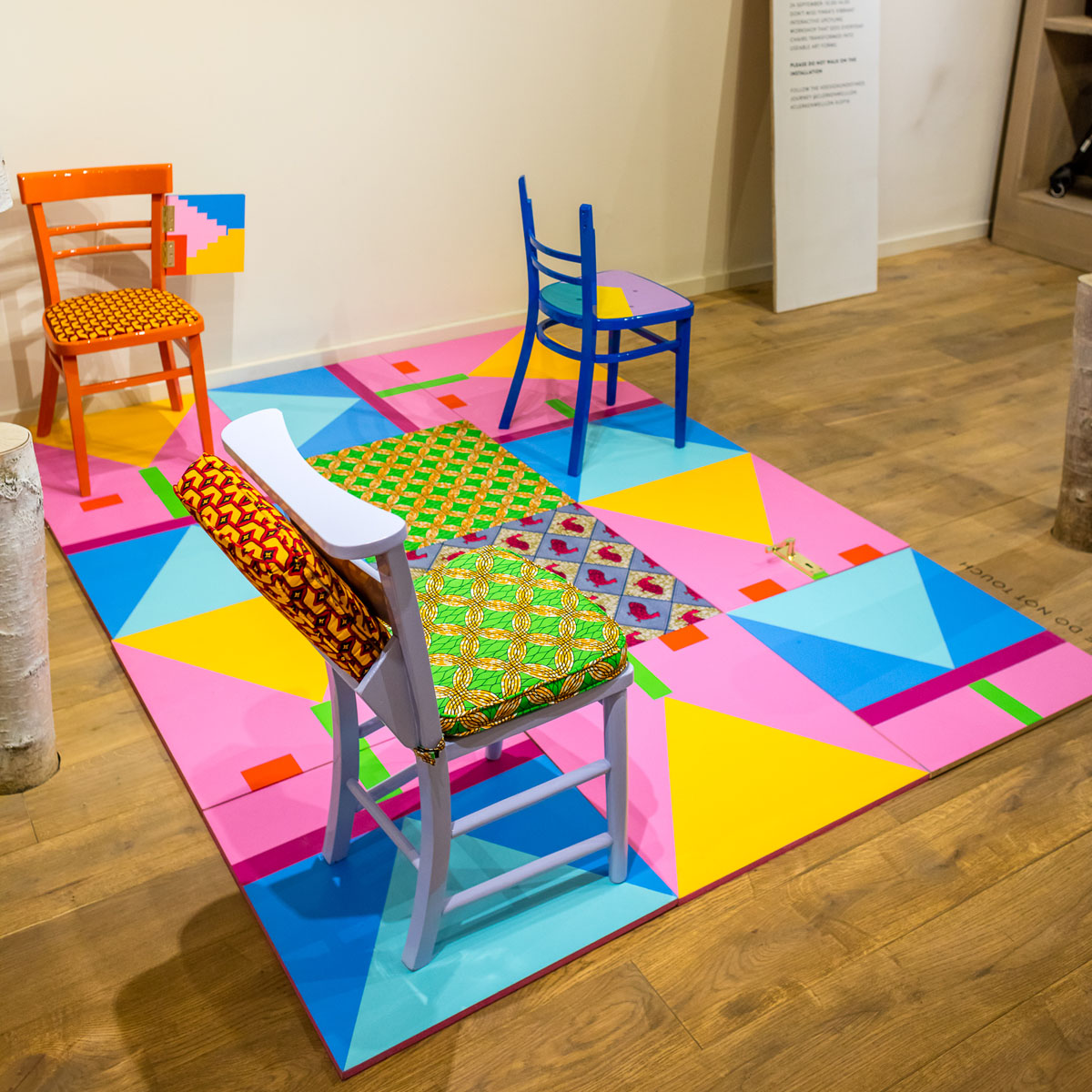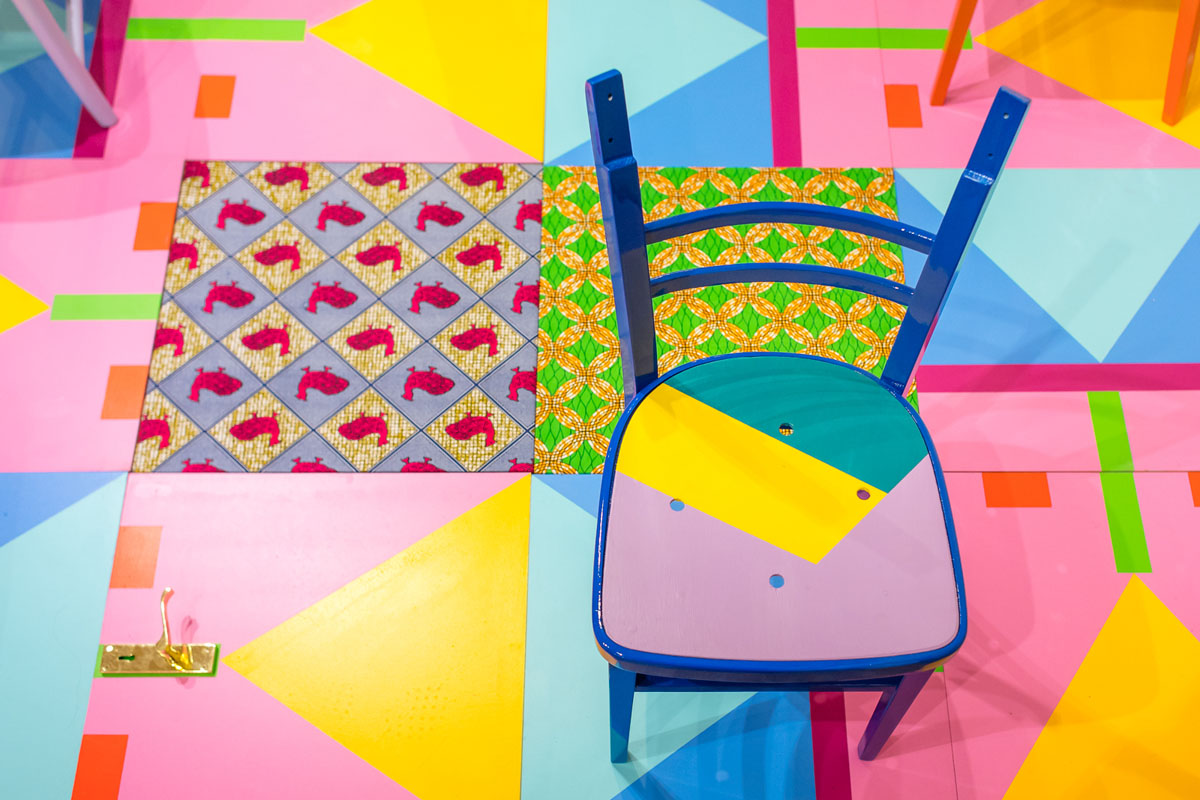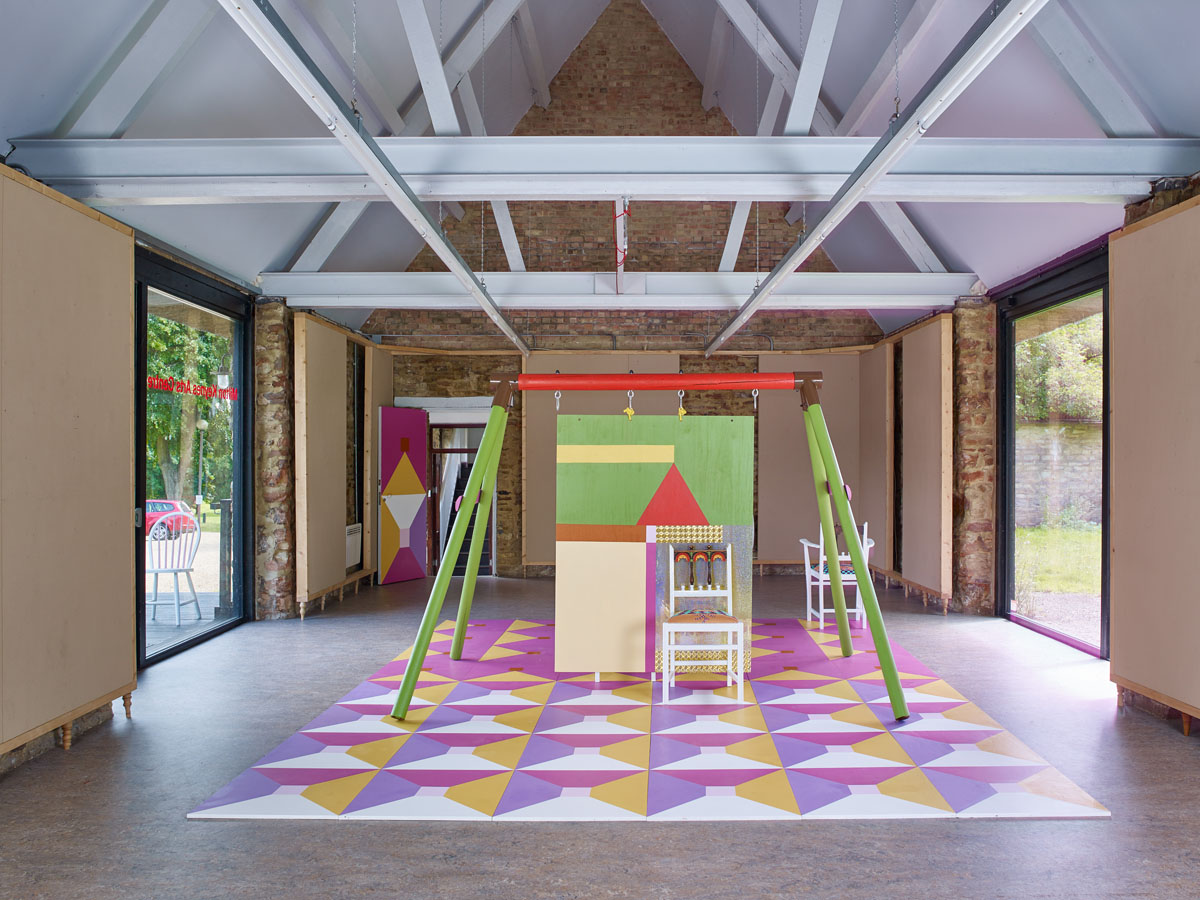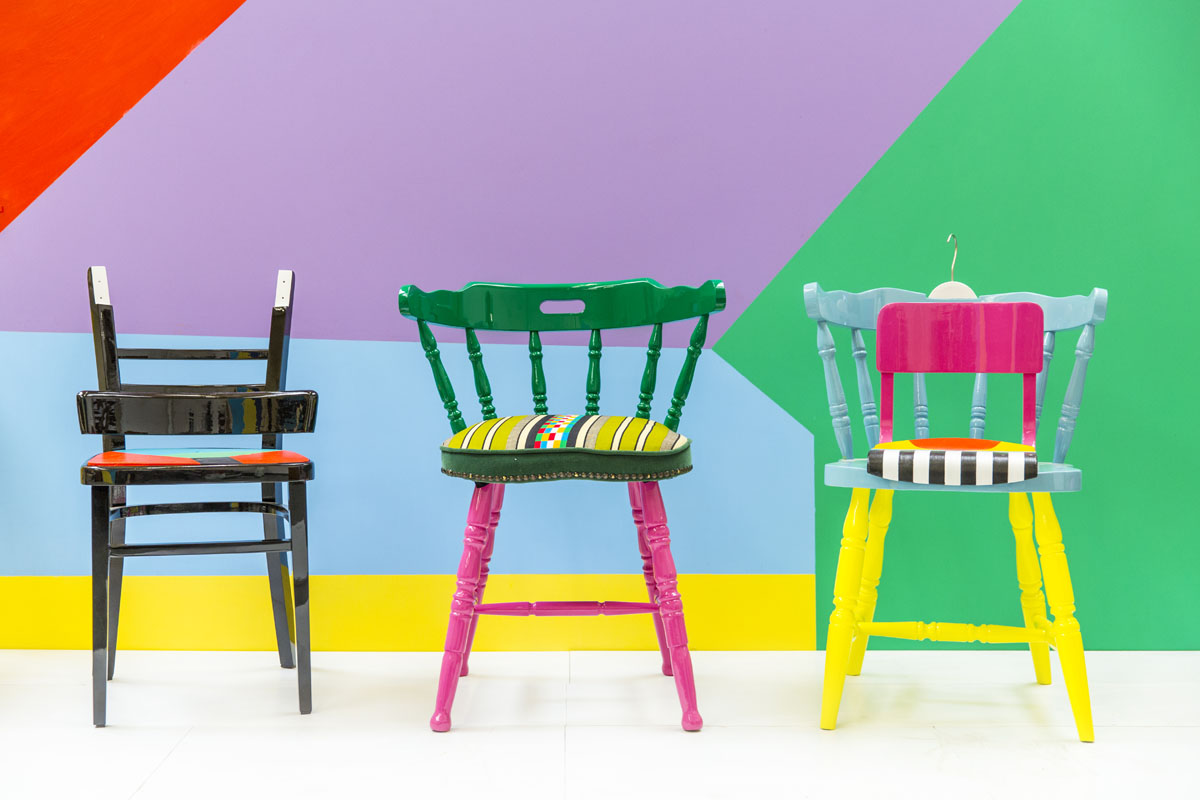Design Indaba alumni and furniture designer Yinka Ilori has found his voice through chairs that tell stories of his Nigerian heritage and London upbringing
You simply haven’t lived until you’ve attended a Nigerian house party. Yinka Ilori made that abundantly clear as he recreated one of his family’s typical get-togethers during his talk at Design Indaba 2017. Inviting the audience to invade the stage, he and his fellow revellers got down to an afrobeat soundtrack in a make believe livingroom. “Nigerians love to party and to dress up. It’s part of the culture,” Ilori confides to me after his frenetic presentation. “I grew up on a north London council estate, so my parents would put the furniture in the hallways, their friends would come over to play music and everyone packed in like sardines having an amazing time.”
His was a strict upbringing though, and the hard-earned furniture that had been put out of harm’s way, was to be respected. “If dad came back from work and I was sat on his velvet armchair, I’d get up out of it,” he recalls with a big grin and hearty laugh. “Everyone had their territory at home. I tended to sit on the left hand side of the sofa. My mum liked the floor.” These happy memories and many more from his early years have gone on to inform his journey to becoming a celebrated conceptual designer. As a first generation British Nigerian, he yearned for a connection to his heritage and has found a way to define his identity through furniture.
Studying art and design fed his natural interest in making furniture but at university he was left cold by creating clean, minimal pieces that spoke more to trends than culture. Then a college project sparked in him a way to build storytelling into his designs. “The idea was to combine two chairs into one. So I found one that was owned by a bit of a naughty boy on the estate and another from a friend who worked really hard in the pub. If you knew where those chairs came from you’d judge them but together they told a new narrative.”
“It’s while sitting on chairs that we all share our thoughts and emotions. Just imagine if chairs could tell your secrets”
Setting up his east London studio in 2011, Ilori began to go back to all the Nigerian parables his parents had told him as a boy and express those in designs that reflect the power of chairs to summon up moments and memories. Using the Dutch wax fabrics his mother wore on special occasions, and upscaling found furniture into brightly coloured, often humorous, and always thought provoking works of art, each chair shared a different message. “Parables talk about status and hierarchy. My favourite is ‘No matter how long the neck of the giraffe is, it still can’t see the future.’ It’s saying we can’t predict what’s in store for anyone so don’t judge them.”
These words of wisdom informed his 2015 solo show, If Chairs Could Talk, at The Shop At Bluebird. The series of chairs each reflected his friendships with different boys from school. “We were always torn between bunking off or getting an education. One guy went to jail, another became an engineer, another sold drugs, one was bullied because his English was bad, and all of them had hopes and dreams,” he recalls. “If you think about it, it’s while sitting on chairs that we all share our thoughts and emotions. Just imagine if chairs could tell your secrets.”
Ilori has also exhibited as part of the Making Africa exhibition at Vitra Design Museum, spoken at Milan Design Week, had a solo show A Whitespace in Lagos and formed a group exhibition with fashion designer Chichia at Now Gallery in London. At last year’s London Design Festival he presented one of his most involved exhibitions yet, Swimming Pool Of Dreams. The installation, incorporating six chairs plus patterned wall and floor coverings, was inspired by sunny trips to the seaside town of Margate with his church as a kid. “People would go to pray to God for seven days – for wealth, for children, for immigration - and often their prayers would be answered. This installation looks at those people, their lives, and where they are now.”
The young designer is now further refining this project for an upcoming gallery show in South Korea, and continues to host workshops where he explains the magic and myths behind Nigerian music, drums and fabric through his own creative processes. Next up, he’s co-curating The Magnum Home with writer Ekow Eshun in May, featuring youth culture photography from Magnum’s archives within a stylised Georgian Townhouse and courtyard. Sit down and relax… but be careful what your seat overhears.
The Magnum House runs from 17-21 May 2017 at 44 Great Russell Street, London
Portrait photography Kent Andreasen
Visit Yinka Ilori
Visit Design Indaba
Published on 26/04/2017









